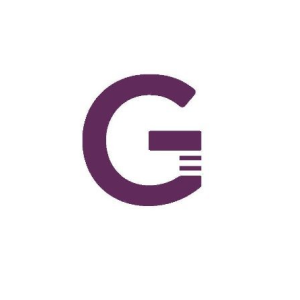GRAIL Presents Initial Results From REFLECTION Real-World Evidence Study of Galleri® Multi-Cancer Early Detection (MCED) Test at the Early Detection of Cancer Conference
Rhea-AI Summary
GRAIL announced initial results from the REFLECTION study evaluating the Galleri® multi-cancer early detection (MCED) test in veterans. The study, conducted across seven VA sites, showed a cancer signal detection rate of 1.30% (37/2854 participants) among veterans with toxic exposure, consistent with other populations. Of 28 participants completing 180-day follow-up, 12 cancer diagnoses were confirmed, with over half identified at early stages (I-III). The test demonstrated a positive predictive value of 42.9%. The study included veterans aged ≥22 years (mean age 60), with 70% exposed to toxic hazards during service. Lung cancer was the most common cancer signal detected.
Positive
- Cancer signal detection rate of 1.30% aligned with previous population results
- 42.9% positive predictive value consistent with previous datasets
- More than 50% of detected cancers were identified at early stages (I-III)
- Successfully detected cancer signals in veterans with toxic exposure risk factors
Negative
- None.
News Market Reaction
On the day this news was published, GRAL declined 5.12%, reflecting a notable negative market reaction.
Data tracked by StockTitan Argus on the day of publication.
Study Participants from Veteran Affairs Sites Include a Diverse Population With Toxic Exposure
Overall, the cancer signal detection rate in this veteran cohort was
"While today doctors screen individually for five specific cancers, nearly
The REFLECTION study (NCT05205967) is a multi-center, prospective, non-interventional, cohort study designed to understand the real-world experience of Galleri in clinical settings. This initial analysis included data from seven VA sites with 180 days of post-test follow-up. A total of 2,924 veterans were enrolled in the study at the time of the analysis and 2,854 are analyzable in these initial study data. Within the veteran cohort with data,
"With many veterans at elevated risk of developing cancer, the initial results from the REFLECTION study provide important insights into the impact of MCED testing to help transform early cancer detection in a real-world setting," said Josh Ofman, MD, MSHS, President at GRAIL. "We're honored to be working with the VA, the largest national integrated health system in the
About the REFLECTION Study
REFLECTION is a multi-center, prospective, non-interventional, cohort study that will enroll approximately 17,000 individuals who have opted to be screened with the Galleri, multi-cancer early detection (MCED) test in routine clinical settings. The purpose of the study is to understand the real-world experience of Galleri in clinical settings. Patients who have been prescribed the Galleri test as part of medical care by their healthcare provider will have the opportunity to consent for participation into this data collection study and will be actively followed for 12 months from the time of enrollment through data capture from electronic health records and periodic self-report questionnaires.
About GRAIL, Inc.
GRAIL, Inc. is a healthcare company whose mission is to detect cancer early, when it can be cured. GRAIL is focused on alleviating the global burden of cancer by using the power of next-generation sequencing, population-scale clinical studies, and state-of-the-art machine learning, software, and automation to detect and identify multiple deadly cancer types in earlier stages. GRAIL's targeted methylation-based platform can support the continuum of care for screening and precision oncology, including multi-cancer early detection in symptomatic patients, risk stratification, minimal residual disease detection, biomarker subtyping, treatment and recurrence monitoring. GRAIL is headquartered in
For more information, visit grail.com.
About Galleri®
The Galleri multi-cancer early detection test is a proactive tool in finding cancer early. With a simple blood draw, the Galleri test can identify DNA shed by cancer cells (unique "fingerprints") to help screen for some of the deadliest cancers that don't have recommended screening today, such as pancreatic, esophageal, ovarian, liver, and others.* The Galleri test can be used to screen for cancer before a person becomes symptomatic, when cancer may be more easily treated and potentially curable. The Galleri test can indicate the origin of the cancer, giving healthcare providers a roadmap of where to explore further. The Galleri test requires a prescription from a licensed healthcare provider and should be used in addition to recommended cancer screenings such as mammography, colonoscopy, prostate-specific antigen (PSA) test, or cervical cancer screening. It is recommended for people over the age of 50, or those with an elevated risk for cancer due to genetics, family history, environmental exposure, or other risk factors.
For more information about Galleri, visit galleri.com
Laboratory/Test Information
The GRAIL clinical laboratory is certified under the Clinical Laboratory Improvement Amendments of 1988 (CLIA) and accredited by the College of American Pathologists. The Galleri test was developed, and its performance characteristics were determined by GRAIL. The Galleri test has not been cleared or approved by the
Forward Looking Statements
This press release contains forward-looking statements. In some cases, you can identify these statements by forward-looking words such as "aim," "anticipate," "believe," "continue," "could," "estimate," "expect," "intend," "may," "might," "plan," "potential," "predict," "should," "would," or "will," the negative of these terms, and other comparable terminology. These forward-looking statements, which are subject to risks, uncertainties, and assumptions about us, may include expectations and projections of test performance , clinical study results, regulatory compliance, potential market opportunity, anticipated growth strategies, and anticipated trends in our business.
These statements are only predictions based on our current expectations and projections about future events and trends. There are important factors that could cause our actual results, level of activity, performance, or achievements to differ materially and adversely from those expressed or implied by the forward-looking statements, including those factors discussed under the section entitled "Risk Factors" in the Quarterly Report on Form 10-Q for the period ended June 30, 2024 and in GRAIL's other filings with the
Forward-looking statements relate to the future and, accordingly, are subject to inherent uncertainties, risks, and changes in circumstances that are difficult to predict and many of which are outside of our control. Although we believe the expectations and projections expressed or implied by the forward-looking statements are reasonable, we cannot guarantee future results, level of activity, performance, or achievements. Our actual results and financial condition may differ materially from those indicated in the forward-looking statements. Except to the extent required by law, we undertake no obligation to update any of these forward-looking statements after the date of this press release to conform our prior statements to actual results or revised expectations or to reflect new information or the occurrence of unanticipated events. Footnotes:
- Schrag D et al. Lancet. 2023;402(10409):1251-1260.
- Westgate C et al. Poster presented at American Society of Clinical Oncology (ASCO) Annual Meeting; June 2-6, 2023,
Chicago, IL. - Klein et al. Ann Oncol. 2021;32(9):1167-1177.
![]() View original content to download multimedia:https://www.prnewswire.com/news-releases/grail-presents-initial-results-from-reflection-real-world-evidence-study-of-galleri-multi-cancer-early-detection-mced-test-at-the-early-detection-of-cancer-conference-302285125.html
View original content to download multimedia:https://www.prnewswire.com/news-releases/grail-presents-initial-results-from-reflection-real-world-evidence-study-of-galleri-multi-cancer-early-detection-mced-test-at-the-early-detection-of-cancer-conference-302285125.html
SOURCE GRAIL, Inc.








